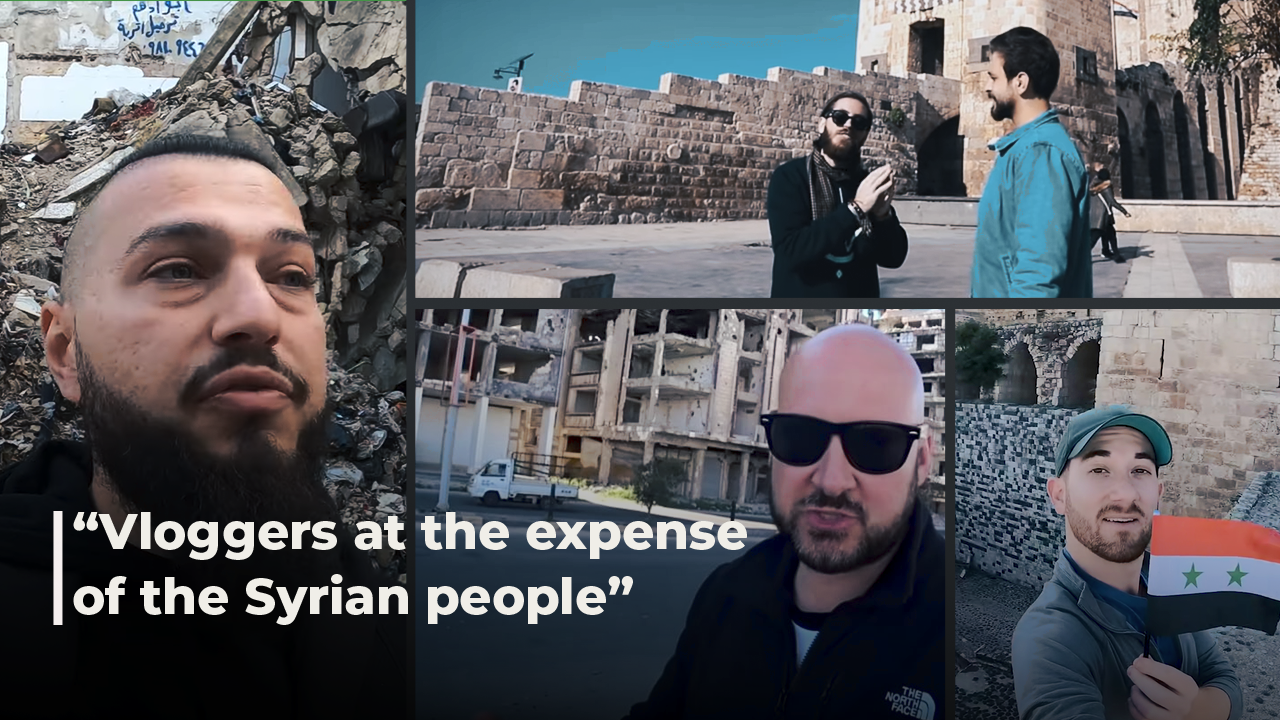
Written by Abdulwahab al-Khateeb
One of the main weapons used by the Assad regime in its brutal war is social media. Using a network of bots, state and allied state media outlets and celebrities and online personalities, to shape the views of the public. Such media tactics can cover crimes and legitimize oppressive and abusive regimes. The regime’s use of internet personalities to spread misinformation via state sponsored scripted propaganda in the guise of organically created content, shows the extent dictators undertake to subvert truth and influence popular opinion.
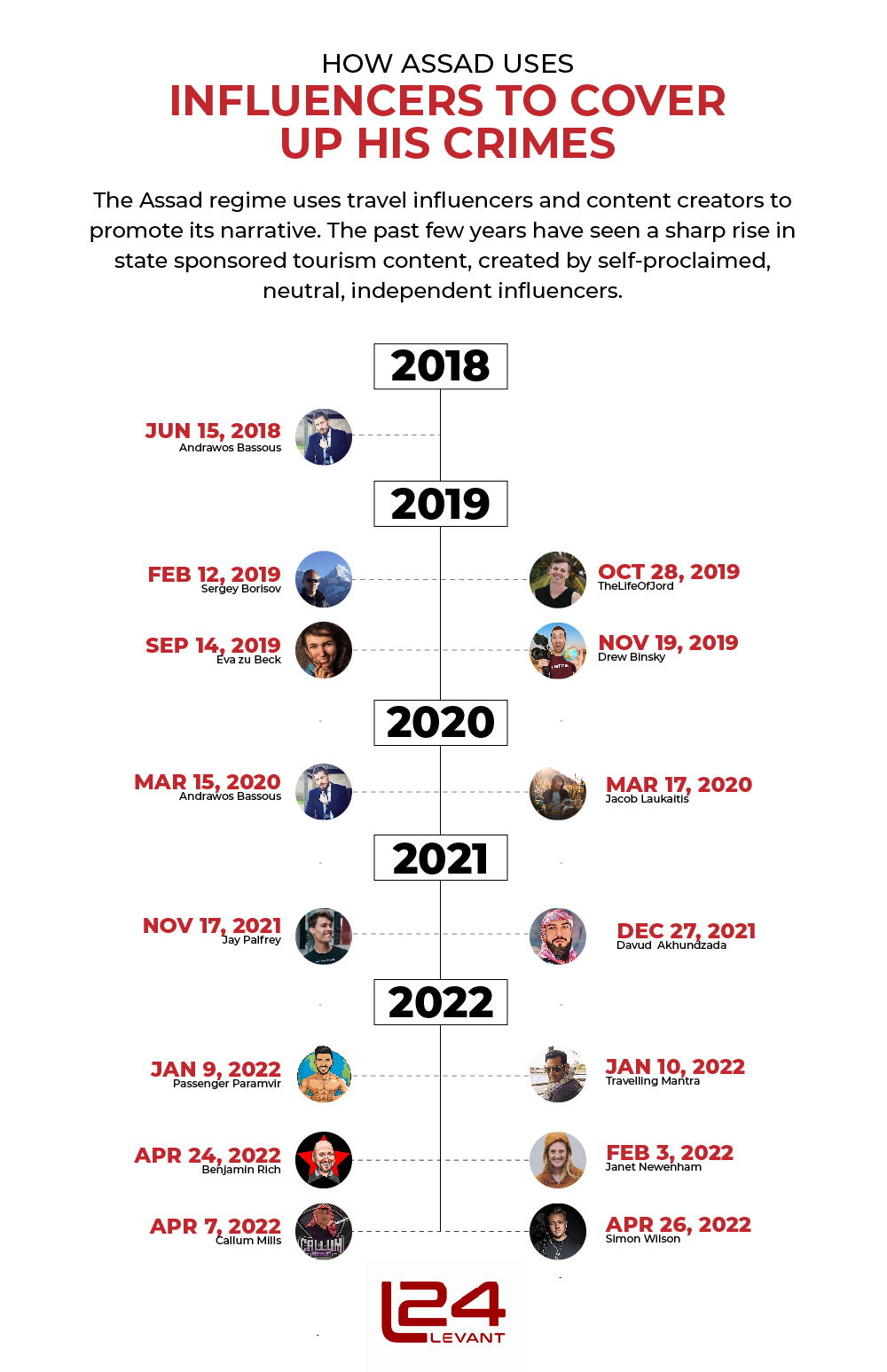
Influencers as the Vanguard
Assad uses influencers, and content creators to promote regime narratives. The last few years have seen a sharp rise in state sponsored “tourism content” published by self-proclaimed non-political, neutral, independent influencers.
Paul Nabil Matthis, Syrian-American author, told L24, “the practice of encouraging hyper-controlled postwar tourism is almost a century old, a method perfected by Franco in Spain and used in various authoritarian territories since as a display of power and stability. Travel influencers in particular generally cultivate a toothless approach to social media tending toward the positive, which happens to lend itself to a propagandic normalization effect rather well.”
The Human Rights Foundation (HRF) agreed and added: “Dictators invite celebrities and influencers because they give their regimes the appearance of stability, normalcy, and calm. Positive press coverage of a pop star’s concert can drown out the cries of political prisoners. Travel vloggers and influencers receive VIP treatment from regimes to portray a country’s ‘openness’ and ‘hospitality,’ but don’t show what life under a dictatorship is really like. By generating positive impressions and glowing reviews, influencers allow dictators to cover up their crimes and gain international legitimacy.”
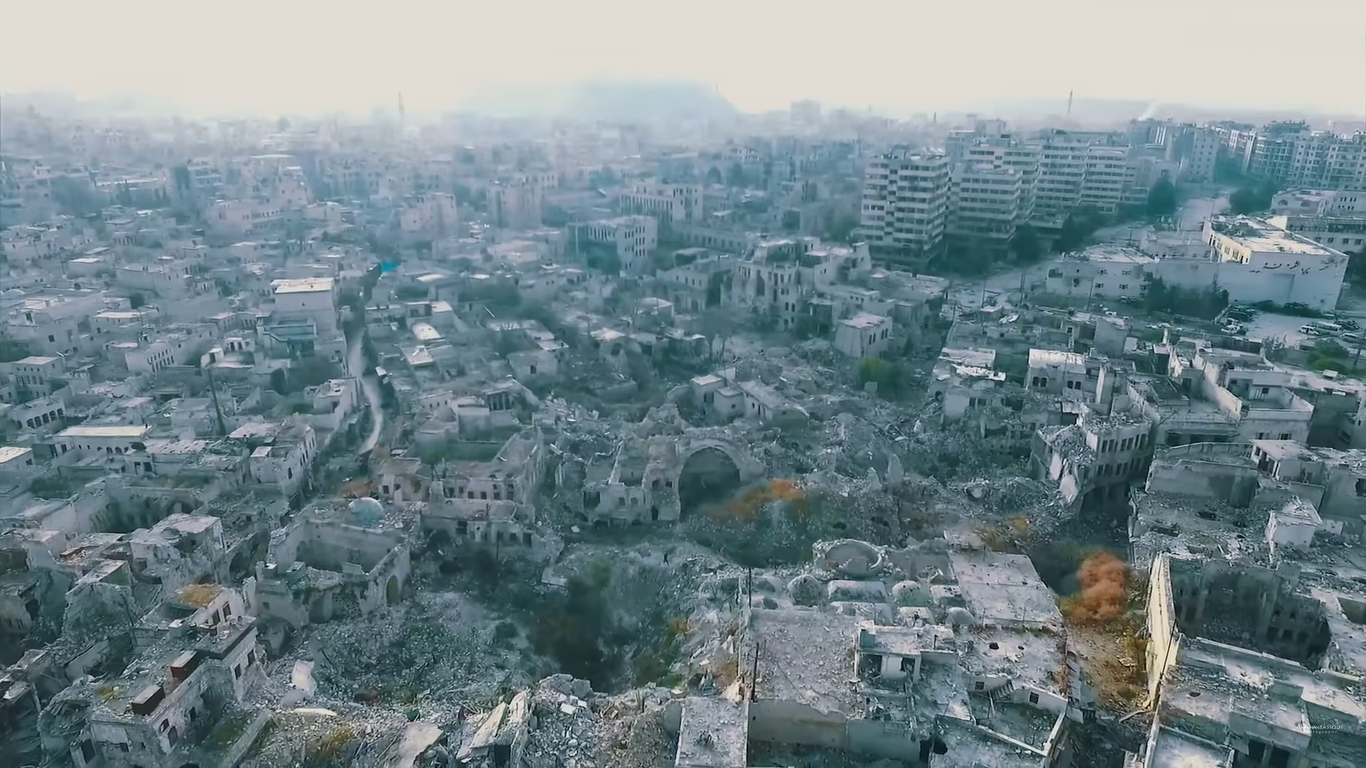
Selling a Lie
In part, the greater aim is to control the narrative on the Syrian conflict and rewrite history, by presenting a manufactured, sanitized and scripted story. Assad benefits by re-branding Syria as a modern, moderate, safe and benevolent government, while the influencers get VIP treatment, “exclusive access” and build their own brand through state sponsored exposure.
Sophie Fullerton, a Columbia University researcher specializing in systemic misinformation in mass media spoke with L24, “The regime is bringing in western travel bloggers as a way to present itself as a safe, liberal and tolerant society that ‘saved’ itself from ‘intolerant Jihadis’. These travel bloggers are chaperoned to specific places by minders, so they never get to see the totality of regime’s destruction.”
Taken by government guides from one controlled environment to another who paint the popular uprising as a “war on terror.” Content creators essentially become an extension of Syrian state propaganda. British YouTubers “Bald and Bankrupt” (Benjamin Rich) and Simon Wilson for example, received a “five star” treatment from their benefactor including passage through checkpoints from Beirut to Damascus, and a series of drivers, cars, hotels and guides throughout the duration of their trip.
Matthis commented, “The number one goal is to frame past crimes against humanity as necessary evils for the sake of stability, despite the fact the regime caused much of the instability. But since Syrians can’t safely post about their situation, the regime can say whatever it wants and it’s difficult for a news agency to rigorously verify reports.”
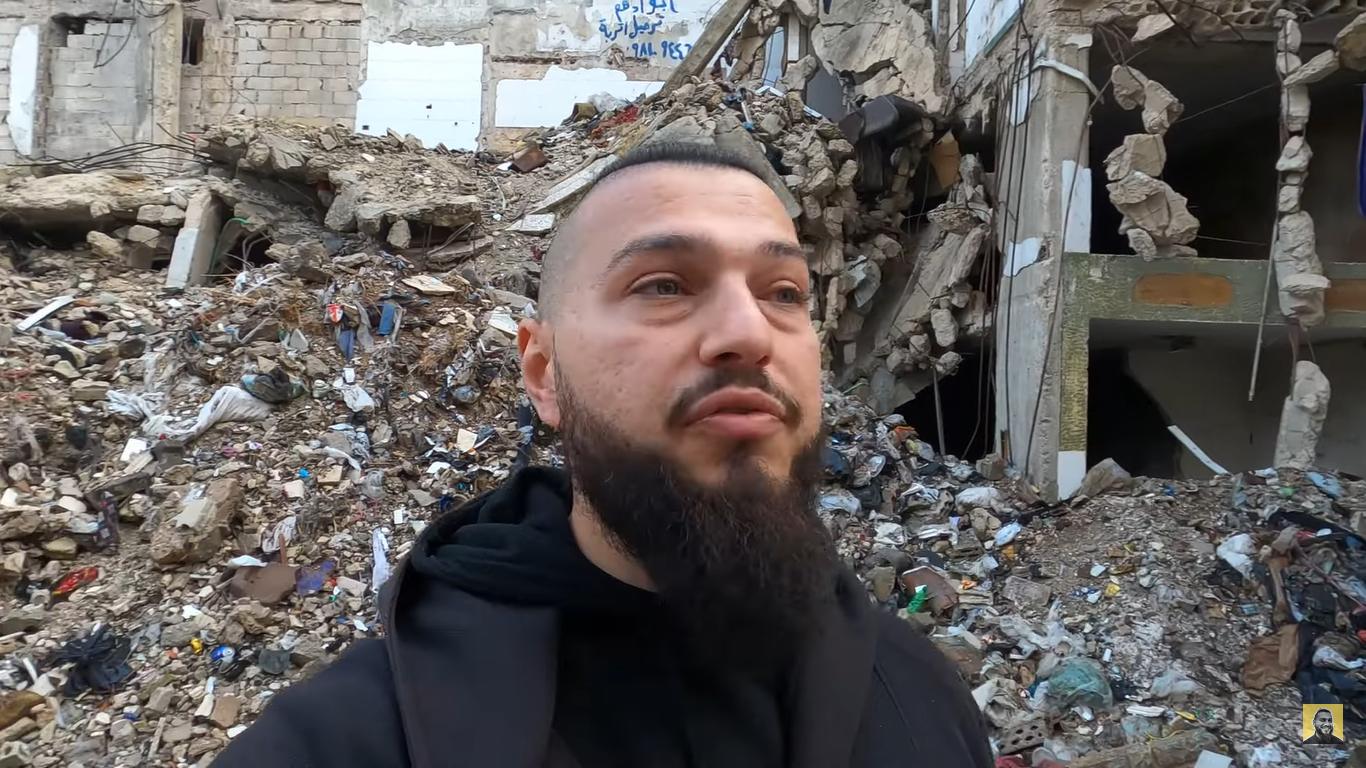
Weaponizing Media
There is a reason why influencers are used by the regime in this way. Matthis says, “influencers get the benefit of seeming cool and ‘exotic’ never even realizing they’re pushing a political agenda. In fact, nearly all of them claim to be apolitical despite putting themselves in a highly politicized situation.”
Some give these influencers the benefit of the doubt others are more skeptical. Qusai Nour a refugee now in Turkey says, “The regime exploits any influential, well-known or famous person. When they invite them to visit or facilitate their visit, they exploit their influence of their followers … most of them, if not all of them, know the truth of what is happening in Syria, they know who the murder is and who the victims are, and they know the regime has killed and displaced millions. I expect they know that helping [Assad] through their videos is a big mistake.”
Fullerton illustrates, “Davud Akhundzada was an unknown travel vlogger with a small YouTube channel… his travel to Syria …established him as a ‘travel influencer.’ He currently has 40,000 subscribers on YouTube.” Upon returning Akhundzada began parroting Assad regime talking points, praising the regime and occupying Russians, mentioning, “how nice the Russian soldiers were” to give to children candy.
Sophie concludes, “This is effective because these people are minor social media figures who are getting perks – free travel and board, sightseeing, building their social media presence – and in return all they have to do is say a few positive things about Syria.”
About one-minute into a video “Is Syria The World’s Most Dangerous Country?” documenting UK influencers’ per-arranged trip through Syria, Rich mentions how a Syrian individual named “Ayoub” reached out to him over Instagram and offered to arrange a tour of Syria for him. Demonstrating the lengths, the Syria government goes to in promoting “tourism.”
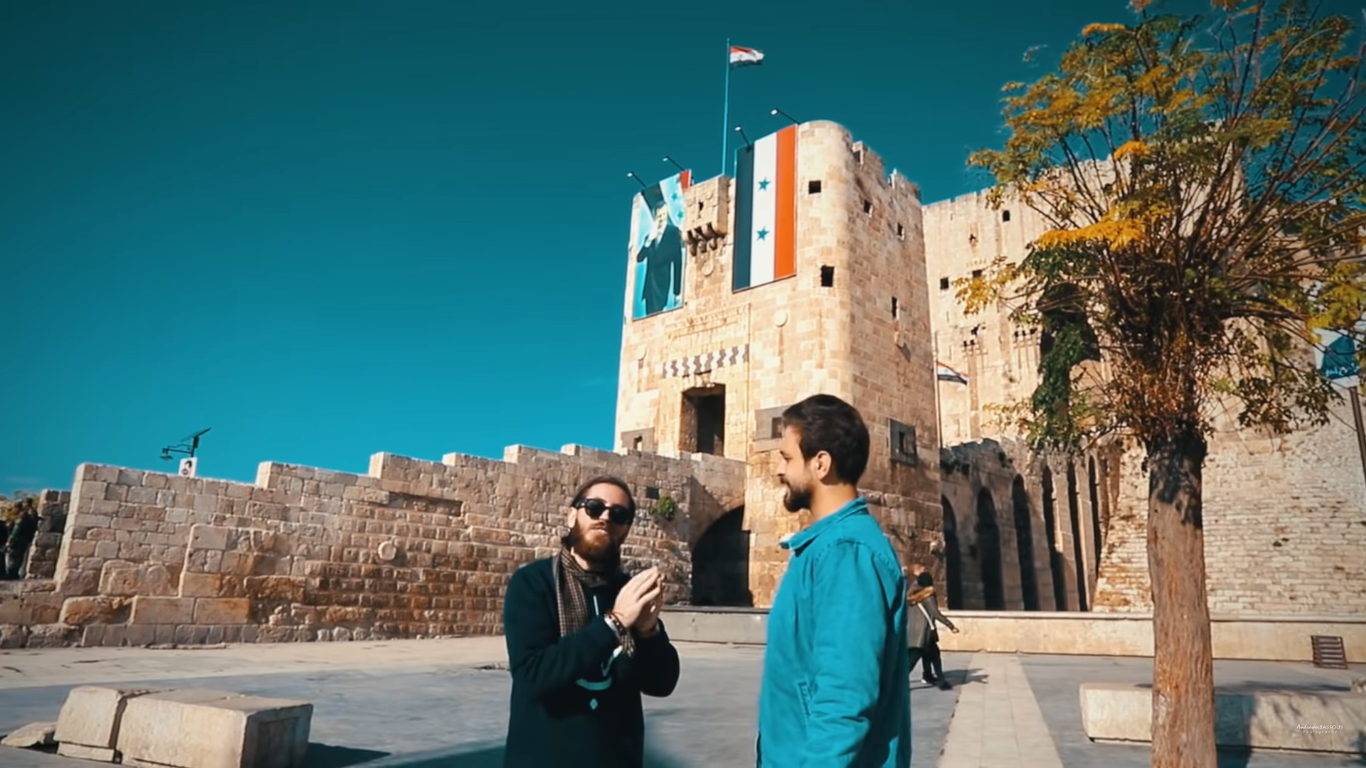
A Question of Morality
Leaving this propaganda allows the promotion of normalization efforts at the expense of the Syrian people. Among the dangers are legitimizing the regime, prolonging its continuation and helping the pursuit of its goals.
Professor Wissam Zarqa, a refugee, told L24, “The Assad regime has great experience in creating and marketing propaganda… not all people believe [their] propaganda about stability but unfortunately many do. Accepting to visit a country half of whose population is displaced and unable to go back is immoral.”

A Need for Change
These campaigns aim to establish Assad as the sole legitimate power in control of a flourishing, stable, safe and secure society. Presenting this whitewashed and inaccurate image to the international community they hope will forward their agenda towards normalization.
The Human Rights Foundation (HRF) said, “Syria is run by a vicious, authoritarian regime. Instead of serving as propaganda tools for the Assad regime, influencers and vloggers … should use their large followings to uphold human dignity, and expose what life under a dictatorship looks like.”
SJAC advises, “More scrutiny should be placed on individuals who promote tourism to Syria; are these trips devised through their input alone, or are they receiving funding through outside resources, and if so, by whom? Travel influencers also have a responsibility to be cognizant of the societal impact their work has in glamorizing travel to war-torn and dangerous areas, especially when it serves to legitimize a government involved in systematic human rights abuses.”
Governments and international bodies should ensure, until all Syrians are able to live in safety and dignity and the 13 million displaced can return home, that travel to the country is monitored. Social media platforms should label content which is sponsored, paid for or contracted by third parties, especially when the line between documentation, journalism and entertainment are blurred. A robust system of labeling and categorizing content is a better alternative to banning.
Travel influencers must boycott oppressive regimes, and not trivialize the suffering and sacrifice of their populations with “adventure” tourism. Creators need to be more vigilant in understanding the ramifications of media they produce. Platforms have a moral obligation in holding content creators to account for whitewashing clear human right abuses of oppressive regimes.









